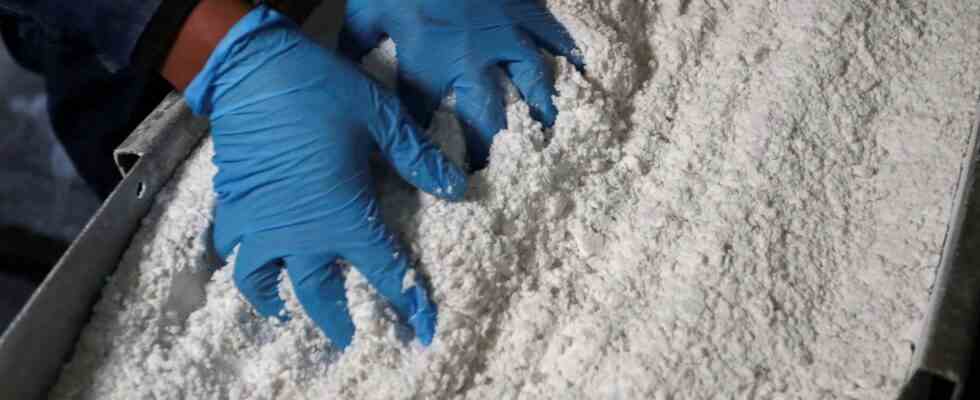Status: 07/26/2022 07:12 a.m
The German economy is heavily dependent on China when it comes to importing rare earths – a risk, according to trade experts and Federal President Steinmeier. The government wants more breadth among suppliers.
In a speech in Hamburg at the beginning of the month, Federal President Frank-Walter Steinmeier warned that neither China nor any other country should be the only partner in the long term, regardless of whether it is for energy, intermediate products or raw materials: “We must ensure that we cannot be blackmailed in any country in the world. That is why we must now find new partners and recalibrate our political and economic relations.”
The Federal President may have also had 17 special metals in mind, such as scandium, yttrium or lanthanum. The substances referred to as “rare earths” are required, for example, for the production of smartphones, LED lamps, electric motors or magnets for turbines in wind turbines.
China with a monopoly
China has a market monopoly on rare earths. A risk, finds the head of the ifo Center for Foreign Trade in Munich, Lisandra Flach. She has just examined how dependent key technologies in Germany are on imports: “Rare earths are classified as raw materials with critical dependencies because there is a high market concentration in terms of the number of suppliers. China has the largest reserves in the world and is also the most important Exporter worldwide. And currently the German economy is heavily dependent on imports from China.”
The dependency is particularly high in battery technology, robotics and renewable energies. The German economy only purchases rare earths from two of the world’s five largest exporters.
Wider installation necessary
Flach believes it is urgently necessary to position oneself more broadly, more diversified, because: “A low degree of diversification with regard to suppliers is associated with a higher risk of delivery failures. And that is the case with rare earths.”
In addition, there is the dependency on the price. The problem has been known for a long time – according to the Federal Ministry of Economics: “There is a raw materials strategy in which this is addressed. This has also long been an issue for the EU Commission. But the diversification of supply sources is in the current situation and under given the impression of energy policy once again in the special focus.”
The federal government, which cannot dictate to companies where and from whom they buy their raw materials, is trying to intervene with a package of measures: “One important point, for example, is to reduce trade barriers.” Falling customs barriers would also give other suppliers a chance. “Then there are various foreign trade instruments, funding instruments – for example investment guarantees.”
These would support investors in developing raw materials abroad. In addition, one is in the process of supporting economic relations more diplomatically.
And a spokesman for the Federal Ministry of Economics emphasized very diplomatically: “These efforts to diversify are not directed against China.” Rather, it is about the general political effort to establish a broader range of supply sources.
Rare earths – how dependent is Germany on China?
Dietrich Karl Mäurer, ARD Berlin, 26.7.2022 6:24 a.m

